School leader Aurelia Melinda Herka Puspita is innovating education by designing more inclusive and effective learning environments.
Her work as the Elementary Principal at Jungle School in Salatiga, Central Java, is shaped by her academic journey in Australia and her dedication to changing how children are assessed and taught.
In 2020, Aurelia began her Masters of Education at the University of Melbourne, funded by the Australia Awards Scholarship. She chose to specialise in assessment and pedagogy.
The program allowed her to tailor her learning, including courses on assessment models, curriculum design, and student engagement strategies.
‘I was drawn to how and why we teach, not just what we teach,’ Aurelia said. ‘In Indonesia, we often focus heavily on delivering content. However, during my time in Melbourne, I was encouraged to think more deeply about the purpose of teaching itself. That shift in perspective helped me reimagine what learning can look like in the classroom.’
Researching Tools for Online Teaching
Pedagogy in education refers to the methods and practices of teaching. In Melbourne, Aurelia focused on how assessments could support student learning, rather than acting purely as a measurement tool.
Her research took a new direction during the pandemic. Aurelia noticed that many teachers were not equipped to keep students engaged or measure their progress effectively in the new digital context.
‘The shift required a mindset change, from simply delivering content to designing learning experiences that empower students, even in a virtual environment. That was a major turning point in my academic journey,” she added.
Aurelia began developing a new research initiative. The objective was to move away from conventional, summative tests and embrace a more dynamic, integrated model.
‘When I was redesigning learning methods, I realised that how we assess students plays just as critical a role as how we teach them. If we continue using the same standardised tests, we ignore how different students truly learn,’ Aurelia explained.
Bringing the Research Home
Aurelia returned to Indonesia in 2022 and joined Jungle School, a non-formal independent school established as an alternative to standardised education. Leveraging her expertise and new position at school, she immediately began applying what she had learned in Australia by redesigning the school's assessment system.
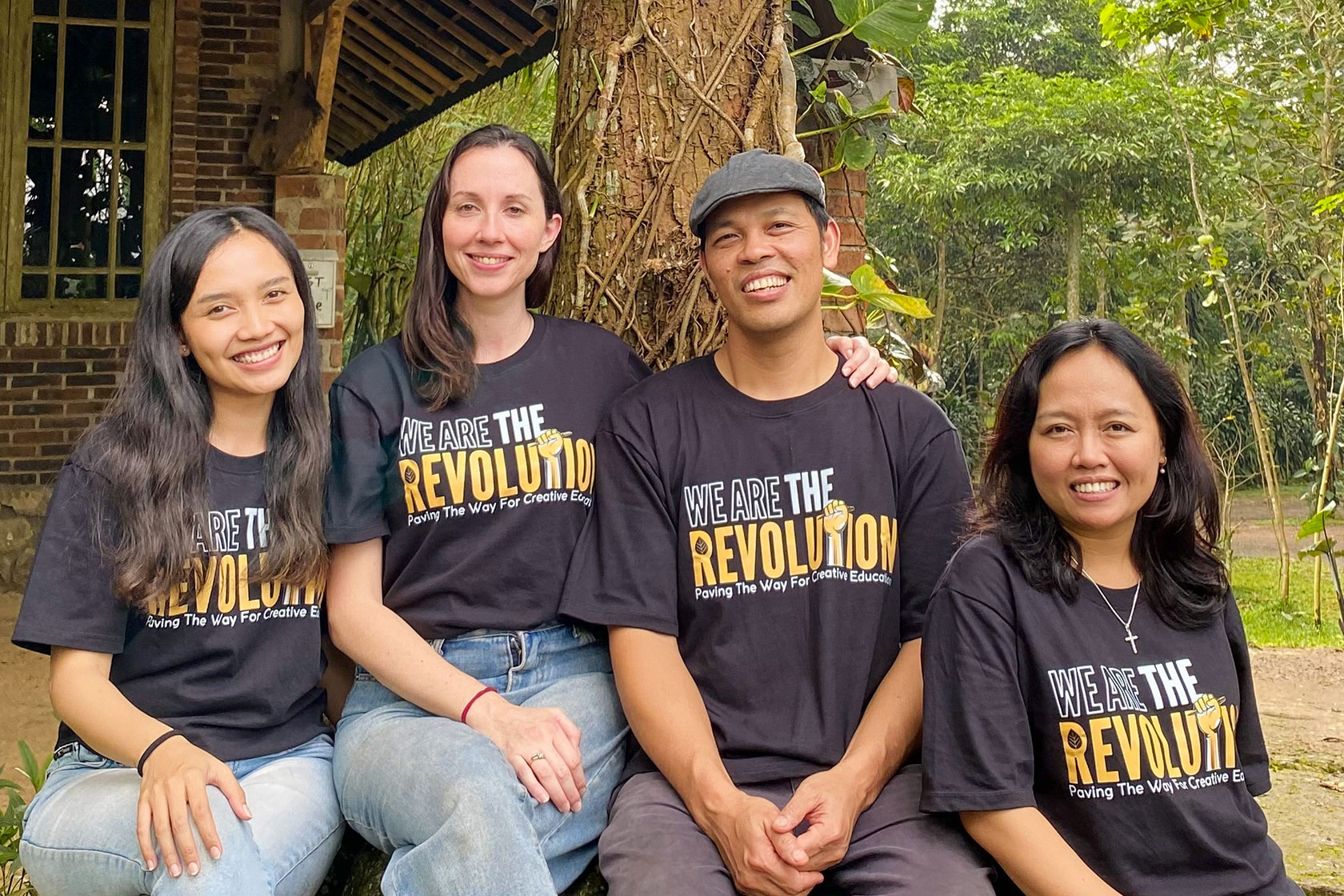
She introduced a model of formative assessment, or ongoing evaluation embedded in daily classroom activities. This approach allowed teachers to measure student development more holistically and adjust their teaching methods in real-time.
‘We moved towards an assessment design where the students didn’t even feel they were being tested. That way, they could focus on the experience of learning,’ she said.
To develop and validate the model, Aurelia consulted her former lecturer from the University of Melbourne, Dr Pam Robertson, who specialised in quality assessment design. This informal mentorship helped shape the foundation of the program.
‘Having access to academic advice from Melbourne gave me the confidence to ensure we were on the right path,’ Aurelia shared.
Jungle School also collaborated with third-party psychologists to develop screening tools for students with special needs. These tools helped assess the level of independence each student could achieve in a classroom and determine whether they required one-on-one teacher support.
Supporting Teachers Through Change
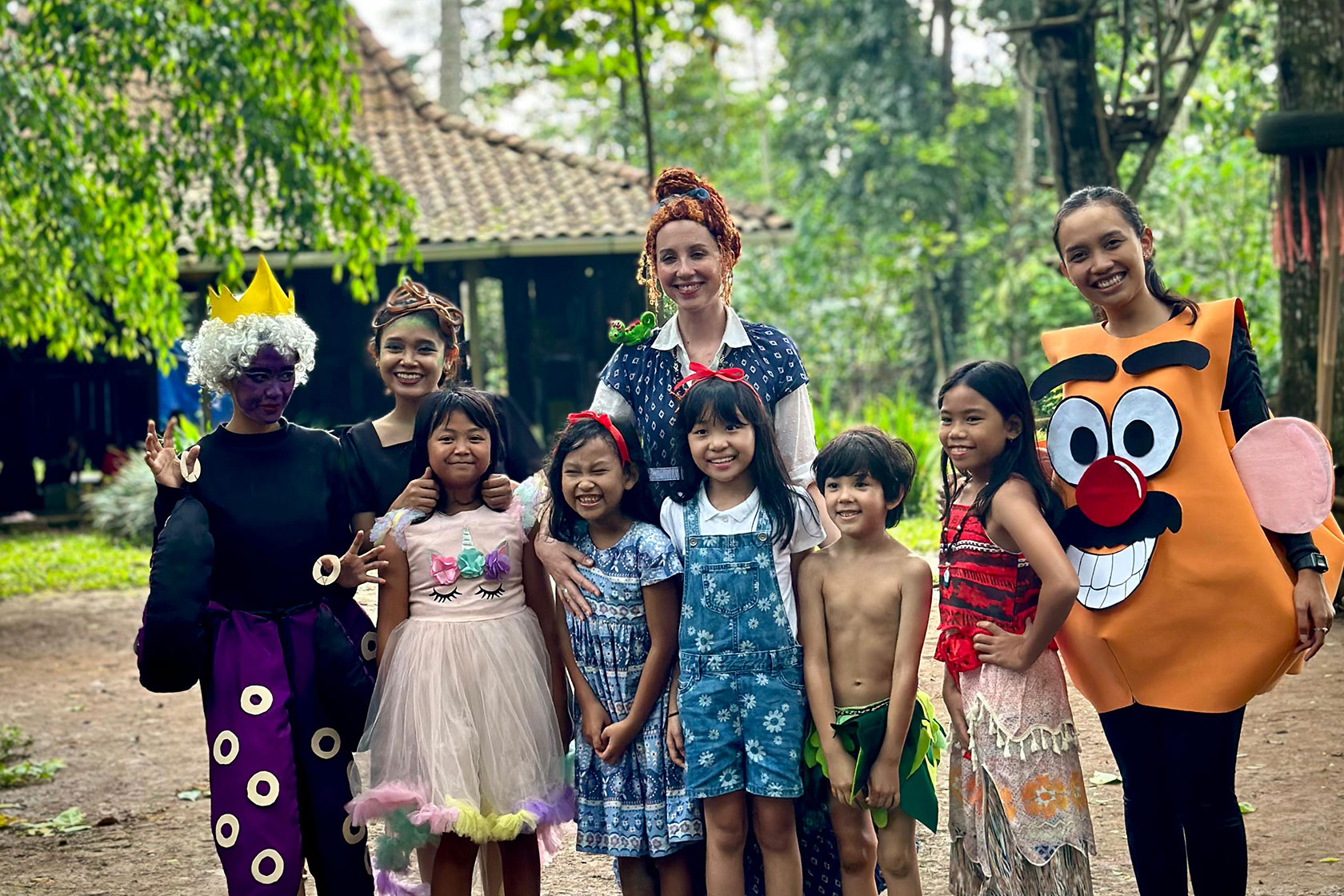
To implement her vision, Aurelia conducted intensive 3-day workshops for teachers. The sessions helped them understand new assessment methods, integrate these methods into their lesson plans, and conduct differentiated learning to meet the diverse needs of students.
Initially, some teachers felt overwhelmed. The new learning plans required more preparation time and greater sensitivity to each student's needs. This was unfamiliar to many educators accustomed to standardised approaches.
To support them, Aurelia introduced daily monitoring to provide consistent feedback, answered questions in real time, and encouraged planning sessions among teachers.
Recognising the workload challenge, she also recommended recycling and adapting previously successful lesson plans as a time-saving strategy.
‘When they saw how engaged the students became, they embraced it,’ Aurelia recalled. ‘We backed up the implementation with workshops, daily check-ins, and a system that supports teachers, not burdens them.’
Shifting Focus From Performance to Growth
The new approach requires teachers to design activities that align with students' visual, auditory, or kinesthetic learning preferences. This ensures that every student can engage in a way that suits their individual strengths.
Under the new model, students have demonstrated marked improvement in academic performance, as well as increased motivation and joy in the learning process. Some students have even preferred to be at school rather than at home during the holidays.
Teachers, too, have reported a renewed sense of purpose and connection. They feel better equipped to track student progress. With real-time feedback, they can adjust lesson plans more effectively.
‘We’ve noticed that students are more engaged and eager to participate,’ Aurelia said. ‘The assessments allow us to see their growth more clearly and celebrate their progress every step of the way.’
Relationships between students and teachers have become more collaborative. The model has shifted the classroom dynamic from a performance-focused to a growth-oriented approach.
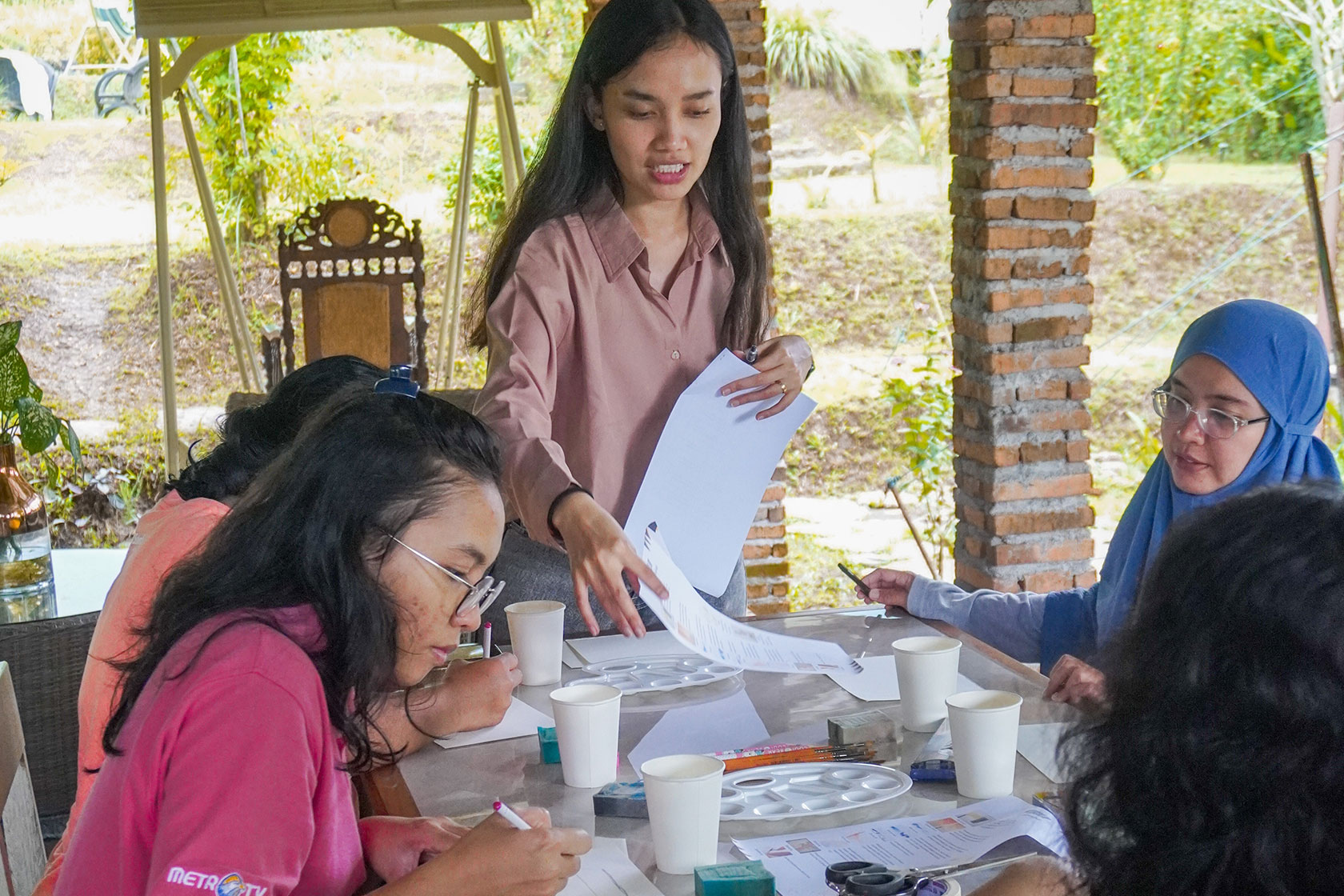
Sharing Knowledge at a Camp for Educators
Aurelia is also one of the collaborators behind an annual camp for teachers from across Indonesia. The 5-day immersive experience takes place in a natural, forested setting, providing educators with an opportunity to step away from the confines of conventional classrooms.
They are encouraged to actively engage with the teaching models developed at Jungle School through observation sessions, hands-on workshops, and group discussions.
‘It’s become a platform to show that alternative education can work. Many teachers come in with curiosity, and they leave with renewed purpose and concrete tools they can take back to their schools,’ Aurelia explained.
After the camp, participants join an online community of practice. The camp has inspired some educators to pilot Jungle School's methods in their own schools. Over time, Aurelia hopes to expand the reach of the initiative nationwide.
‘With shared commitment and a willingness to explore new ideas, we can transform education into one classroom at a time,’ she said.
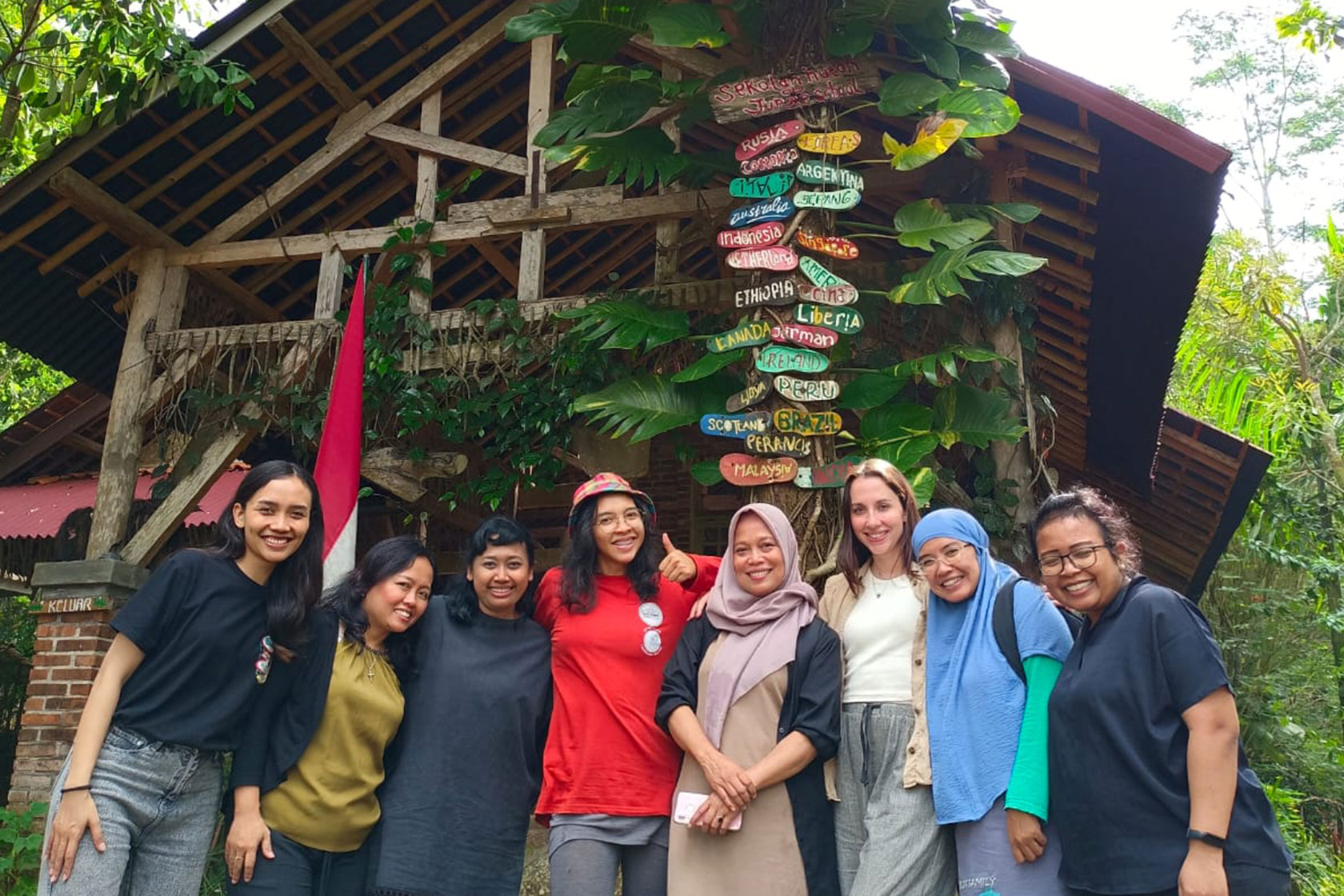

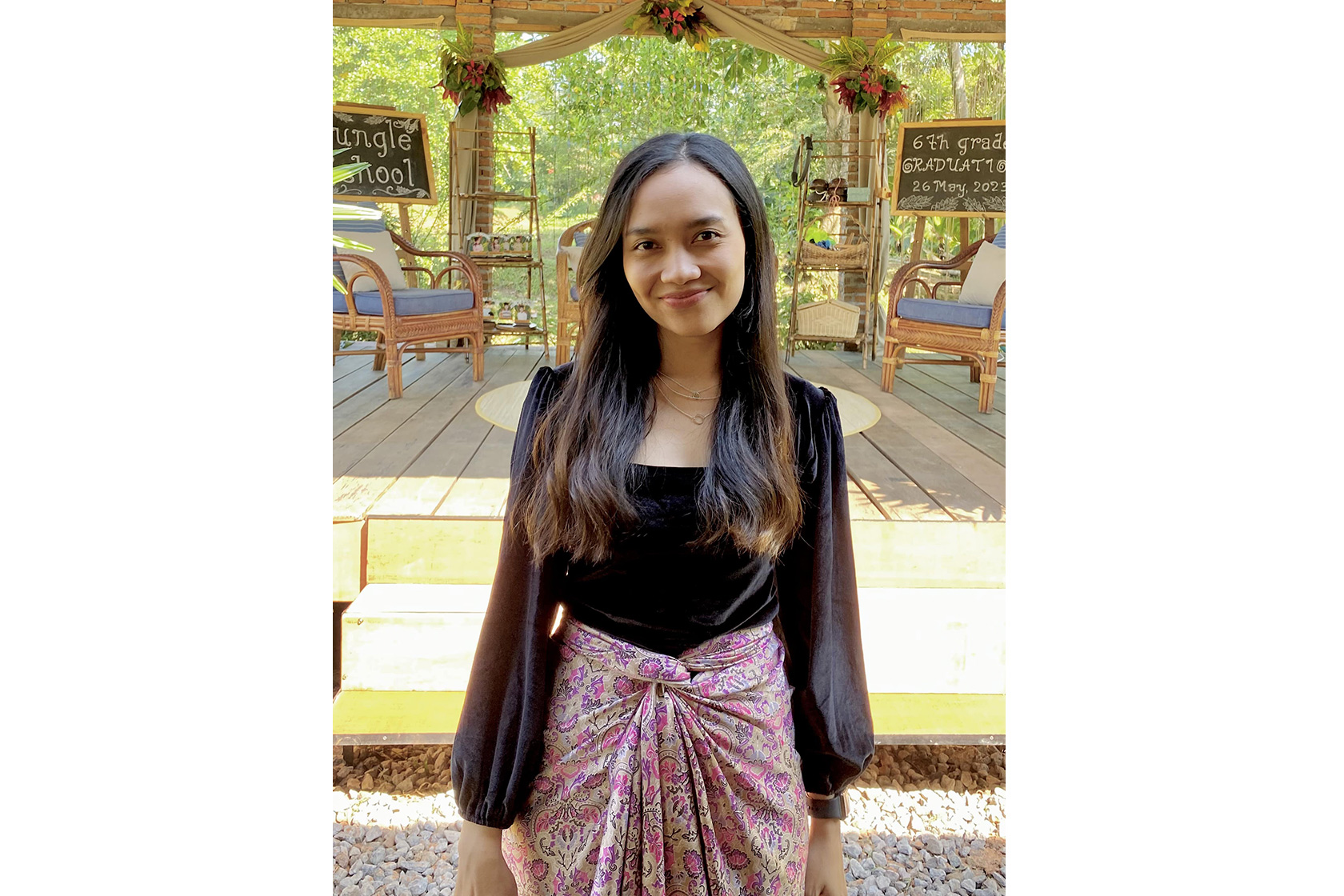
 Dari Pelajar Menjadi Pemimpin Sekolah: Kontribusi Aurelia Melinda Herka Puspita terhadap Pendidikan Inklusif
Dari Pelajar Menjadi Pemimpin Sekolah: Kontribusi Aurelia Melinda Herka Puspita terhadap Pendidikan Inklusif
